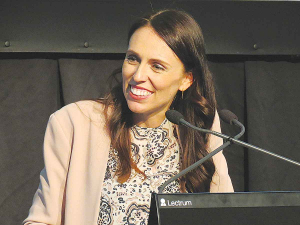M.I.A.
OPINION: The previous government spent too much during the Covid-19 pandemic, despite warnings from officials, according to a briefing released by the Treasury.
 When Covid-19 first arrived on NZ shores, PM Jacinda Ardern made great play of the fact that the primary sector would be the saviour of the economy.
When Covid-19 first arrived on NZ shores, PM Jacinda Ardern made great play of the fact that the primary sector would be the saviour of the economy.
OPINION: When Covid-19 first arrived in New Zealand, PM Jacinda Ardern made great play of the fact that it would be the primary sector - and that means rural NZ - would be the saviour of the economy.
Agriculture and the supporting processing and supply chain workers and farmers were deemed essential, and to their great credit these people have delivered 100% and more.
But if perchance, or maybe out of morbid curiosity, you tune into Jacinda's daily sermons from the Beehive, you would struggle to hear the word 'rural' mentioned these days.
The vaccine roll-out has been urban driven with percentage rates in Auckland hailed and glorified. It seems to be all about high population numbers, which also means votes, or is that being too cynical?
While low vaccination rates are in the Beehive narrative, what is not coming through is that many of the very low vaccination rates are in clusters in rural areas - often Maori and Pasifika who are absolutely essential, in fact critical, workers for the success of NZ's economic failure.
They often form the bulk of the workers in the meat processing plants and perform other essential roles in rural areas.
It would appear that the Government and the Ministry of Health officials stupidly think that urban based solutions for dealing with Covid can somehow be shoehorned or made to fit in rural areas.
It's time these people started listening to people like Fiona Bolden (chair Rural GP Network) and other rural GPs and health professionals and get a few facts under their belts before joining the cheerleaders' party at the Beehive.
Regional NZ has been short-changes by successive governments: we have sewerage leaks in the hospital in Whangarei, only four ICU beds in Rotorua and Dairy News has been told that one DHB servicing a large rural area has closed off its waiting list for people wanting elective surgery.
Now just watch Parliament and see the different parties hold up graphs and put out press releases saying how good they are or have been. The word 'bullshit' readily comes to mind!
It has taken a pandemic to show up the underinvestment in health. The fact is, rural people are deprived of quality health care due to years of neglect and it seems the politicians and policy wonks in Wellington simply don't get, or care, about what happens outside big city boundaries. People will die because of this.
The World Wide Sires National All Day Breeds Best Youth Camp Best All Rounder plaudit has become family affair, with 2026 Paramount Cup winner Holly Williams following in her sister Zara's footsteps.
DairyNZ is giving New Zealand farmers a unique opportunity to gain hands-on governance and leadership experience within the dairy sector.
Herd improvement company LIC has posted a 5.2% lift in half-year revenue, thanks to increasing demand for genetics.
According to the latest Fresh Produce Trend Report from United Fresh, 2026 will be a year where fruit and vegetables are shaped by cost pressures, rapid digital adoption, and a renewed focus on wellbeing at home.
The Roar is a highlight of the game hunting calendar in New Zealand, with thousands of hunters set to head for the hills to hunt male stags during March and April.
OPINION: The past few weeks have been tough on farms across the North Island: floods and storms have caused damage and disruption to families and businesses.
OPINION: Fonterra may be on the verge of selling its consumer business in New Zealand, but the co-operative is not…
OPINION: What does the birth rate in China have to do with stock trading? Just ask a2 Milk Company.